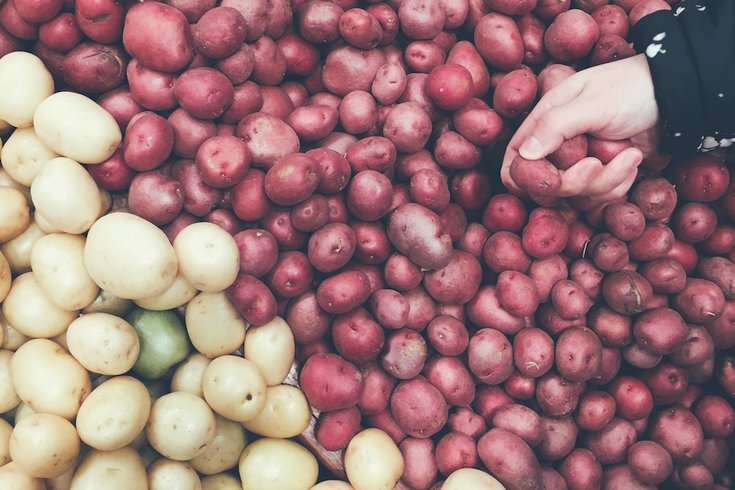
April 03, 2019
 Nic D/Unsplash
Nic D/Unsplash
Despite the popularity of low-carb diets, potatoes are actually a great vegetable to consume.
For most of millennials’ lives, the world of healthy eating trends has gone back and forth on carbs — flip-flopping on whether it’s “good” to eat them or not.
That, mixed with the current popularity of low-carb diets like Keto, leave us with a big ol’ question mark on our foreheads when it comes to determining if we should eat carbs and which ones are the “best” to consume.
Potatoes, of course, are one of the most beloved forms of carbohydrates, whether mashed, fried or simply roasted — they’re a crowd pleaser. But “normal” potatoes have kind of been cast aside for their exciting and “healthier” cousin, the sweet potato.
RELATED READ: Low-carb cheese wraps are the answer to your ketogenic diet prayers
The thing is, those normal potatoes you’ve been avoiding for more nutrient-rich alternatives are actually pretty nutritious.
First things first, it’s important to keep in mind that because potatoes are a bonafide vegetable — and not, say, some sort of processed junk — they naturally come with some health benefits. A large, raw potato carries the following nutritional data: 9 grams of fiber, 1502 mg of potassium and 34 mg of vitamin C, Well and Good reports. Christy Brissette, R.D., told the web site:
“People don’t tend to think of potatoes as vitamin C-rich sources because they’re not citrusy fruits, but they actually are an amazing source,” Brissette says. “You get 45 percent of your daily intake, which is pretty impressive.”
According to the USDA's Nutrient Database, a potato – large, white and raw – has the following nutritional value:
• Calories: 255
• Fat: 0.1 g
• Protein: 6 g
• Fiber: 9 g
• Carbohydrates: 58 g
• Sugar: 4 g
The problems set in when you over-consume spud-y foods — like a huge serving of fries or twice-baked potatoes with all the fixings.
It can be surprising to find out that potatoes are generally high on the glycemic index (GI), which rates how much certain foods raise your blood glucose. If you want to eat potatoes, select a lower GI potato variety — like Russet or red-skinned — enjoy smaller servings, and pair potatoes with foods that counteract the glucose, Verywell Fit reports.
To prepare potatoes in a more nutritious way, add a tablespoon of healthy fat — Brissette recommends butter, olive oil or avocado oil — to slow down the release of sugar and better absorb the naturally-occurring vitamins, Well and Good recommends.
Long story short: Yes, potatoes can be healthy — as long as they’re eaten thoughtfully and in moderation. Just don’t let the anti-carb propaganda deter you from enjoying a spud from time to time.